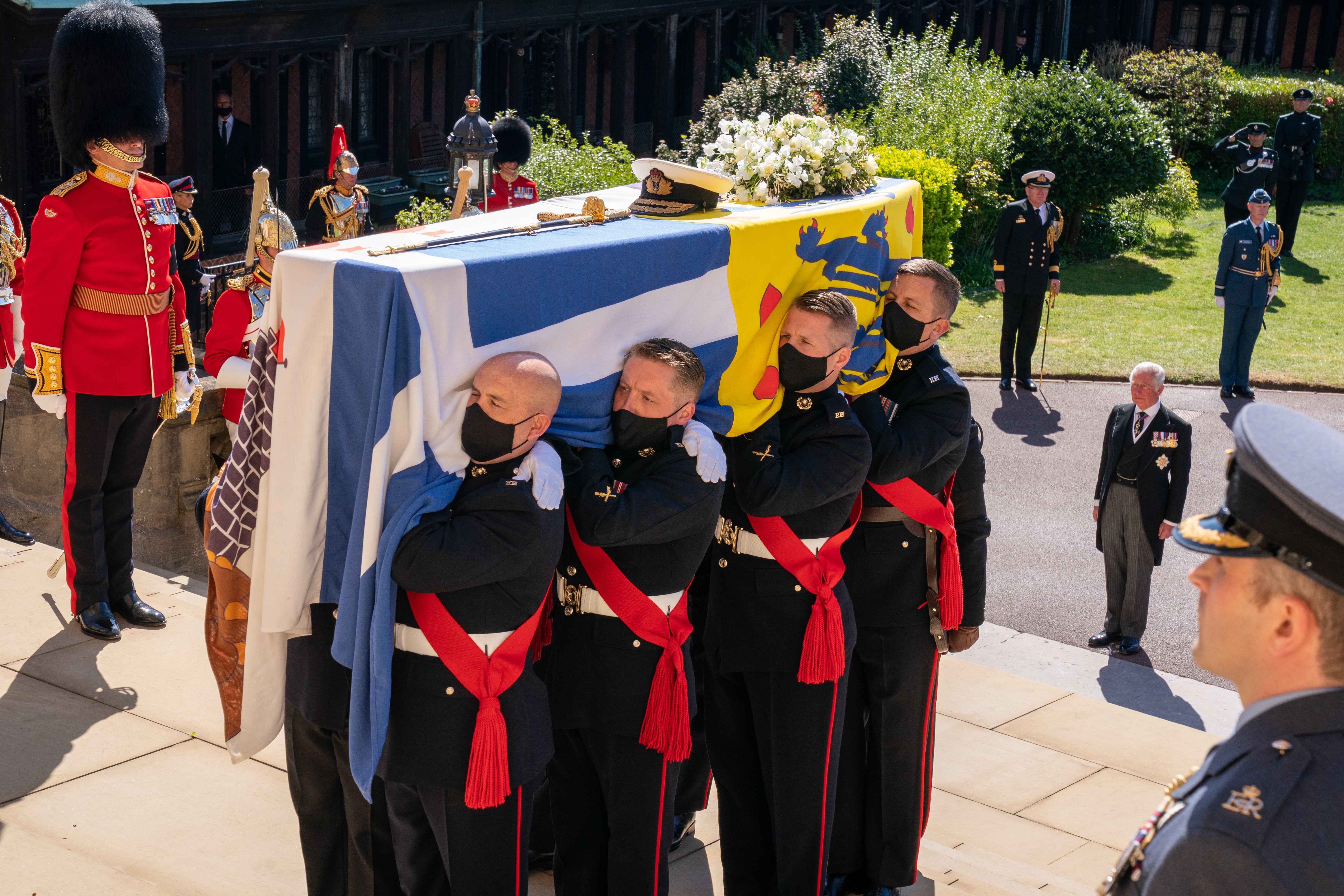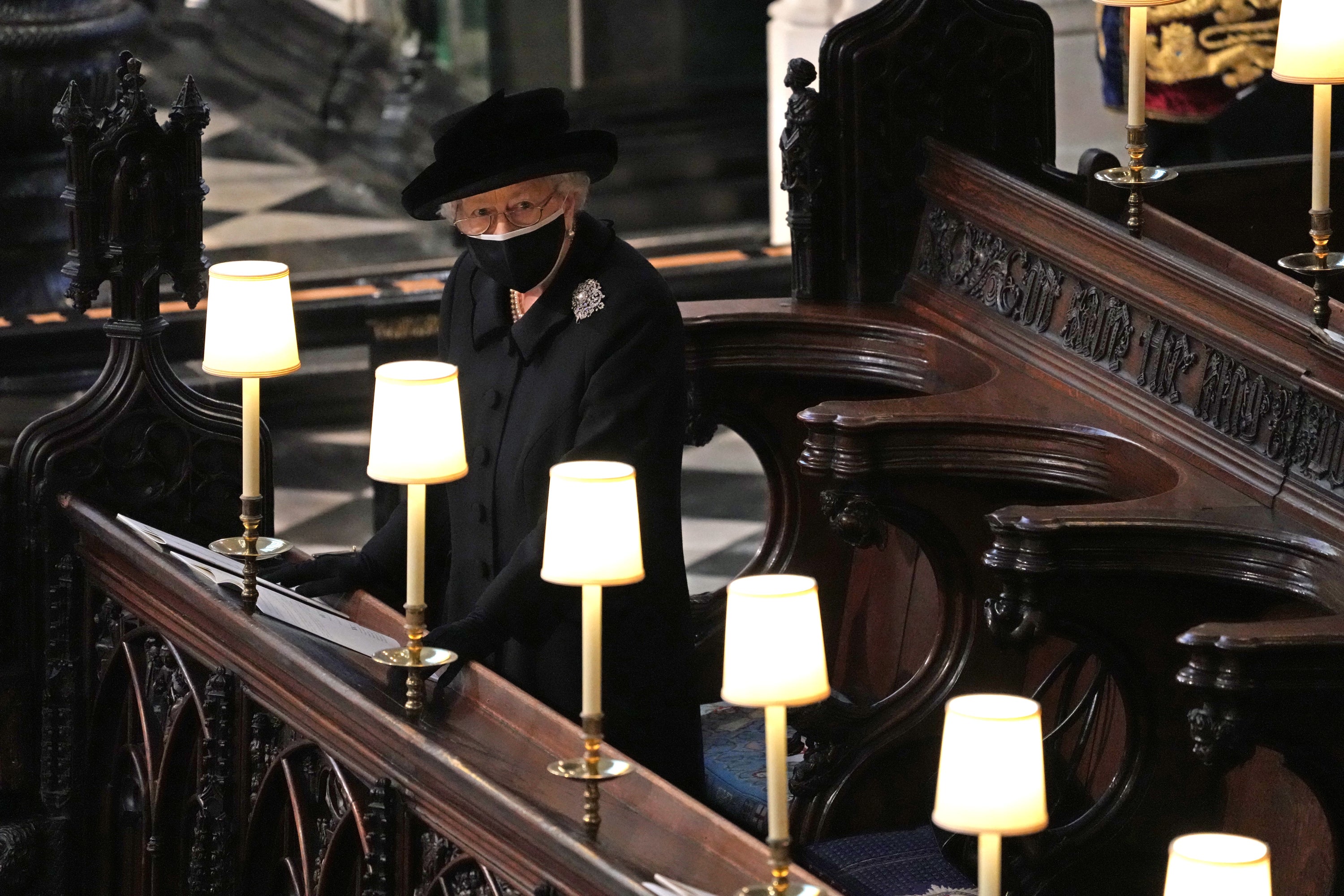How did Covid restrictions affect the Duke of Edinburgh’s funeral?
Fresh allegations of Downing Street parties on eve of Prince Philip’s funeral met with widespread anger

Your support helps us to tell the story
From reproductive rights to climate change to Big Tech, The Independent is on the ground when the story is developing. Whether it's investigating the financials of Elon Musk's pro-Trump PAC or producing our latest documentary, 'The A Word', which shines a light on the American women fighting for reproductive rights, we know how important it is to parse out the facts from the messaging.
At such a critical moment in US history, we need reporters on the ground. Your donation allows us to keep sending journalists to speak to both sides of the story.
The Independent is trusted by Americans across the entire political spectrum. And unlike many other quality news outlets, we choose not to lock Americans out of our reporting and analysis with paywalls. We believe quality journalism should be available to everyone, paid for by those who can afford it.
Your support makes all the difference.Fresh allegations of Downing Street parties taking place on the eve of the Duke of Edinburgh’s socially-distanced funeral - which saw the Queen, 95, forced to sit alone as she mourned her husband of 73 years - have been met with widespread anger.
It was reported that two events were held on 16 April last year, while the country was under strict coronavirus restrictions and in a period of national mourning following Prince Philip’s death.
Both events are said to have been leaving parties for staff working in the prime minister’s inner team. One was reportedly held for James Slack, prime minister Boris Johnson’s then-director of communications, and the other for his personal photographer.
Witnesses said that “excessive alcohol” was drunk, attendees danced to music DJ’d by a special adviser beyond midnight and, at one point, a staffer was sent out to the local branch of Co-op to fill a suitcase with bottles of wine.
Liberal Democrat leader Sir Ed Davey and Labour deputy leader Angela Rayner were among those to condemn the latest allegations in the wake of the wealth of sacrifices made for the funeral to go ahead.
Covid-19 restrictions had a substantial impact on the proceedings, with the guest list trimmed from 800 to just 30.
The Queen attended the funeral wearing a face mask and socially-distanced from her family at the service in St George’s Chapel at Windsor Castle.
Those in the funeral procession were required to put their face masks on before entering St George’s Chapel.
Bottles of hand sanitiser - a familiar mark of the pandemic - featured alongside the traditional dressing of floral arrangements and family wreaths.
Original plans for military processions through London or Windsor were scrapped, with the royal family asking the public not to gather at the castle or other royal residences.
The choir was also limited to just four singers, while the few guests were banned from singing in line with the Covid regulations.

Meanwhile, the rest of the country was living under strict “Step 2” restrictions as the UK began its exit from a third national lockdown, brought in to tackle a brutal winter wave of Covid infections that had beset the country in January and February, leading to spikes in hospitalisations and deaths before the national vaccine rollout began to make an impact in the spring.
People were being urged to work from home “if you can” at the time and keep socialising to a minimum, staying within their support bubbles.
“You must not socialise indoors except with your household or support bubble,” the contemporary guidelines read.
“You can meet outdoors, including in gardens, in groups of six people or two households.”
Non-essential businesses and public buildings had been allowed to reopen but strict table service rules were still being observed in restaurants and bars as the national recovery remained touch and go.


